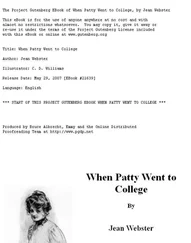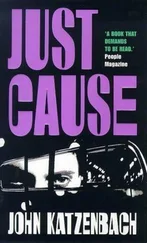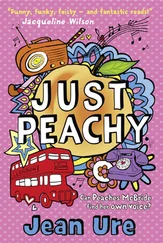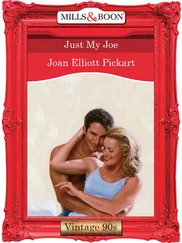Jean Webster - Just Patty
Здесь есть возможность читать онлайн «Jean Webster - Just Patty» весь текст электронной книги совершенно бесплатно (целиком полную версию без сокращений). В некоторых случаях можно слушать аудио, скачать через торрент в формате fb2 и присутствует краткое содержание. Год выпуска: 2007, Жанр: Классическая проза, на английском языке. Описание произведения, (предисловие) а так же отзывы посетителей доступны на портале библиотеки ЛибКат.
- Название:Just Patty
- Автор:
- Жанр:
- Год:2007
- ISBN:нет данных
- Рейтинг книги:4 / 5. Голосов: 1
-
Избранное:Добавить в избранное
- Отзывы:
-
Ваша оценка:
- 80
- 1
- 2
- 3
- 4
- 5
Just Patty: краткое содержание, описание и аннотация
Предлагаем к чтению аннотацию, описание, краткое содержание или предисловие (зависит от того, что написал сам автор книги «Just Patty»). Если вы не нашли необходимую информацию о книге — напишите в комментариях, мы постараемся отыскать её.
Just Patty — читать онлайн бесплатно полную книгу (весь текст) целиком
Ниже представлен текст книги, разбитый по страницам. Система сохранения места последней прочитанной страницы, позволяет с удобством читать онлайн бесплатно книгу «Just Patty», без необходимости каждый раз заново искать на чём Вы остановились. Поставьте закладку, и сможете в любой момент перейти на страницу, на которой закончили чтение.
Интервал:
Закладка:
"And what did you say?"
"I said I was awfully sorry, but he'd have to."
"And then what happened?"
"Nothing happened," she was obliged to confess. "I s'pose something might have happened if I'd accepted him, but you see, I didn't."
"But you were very young at the time," suggested Evalina Smith. "Are you sure you knew your own mind?"
Rosalie nodded with an air of melancholy regret.
"Yes. I knew I couldn't ever love him, because, he—well, he had an awfully funny nose. It started to point in one direction, and then changed its mind and pointed in the other."
Her hearers would have preferred that she had omitted this detail; but Rosalie was literal-minded and lacked the story-teller's instinct for suppression.
"He asked if there wasn't any hope that I would change," she added pensively. "I told him that I could never love him enough to marry him, but that I would always respect him."
"And then what did he say?"
"He said he wouldn't commit suicide."
A profound hush followed, while Rosalie gazed at the moon and the others gazed at Rosalie. With her gleaming hair and violet eyes, she was entirely their ideal of a storybook heroine. They did not think of envying her; they merely wondered and admired. She was crowned by natural right, Queen of Romance.
Mae Van Arsdale, who had listened in silence to the recital, was the first to break the spell. She rose, fluffed up her hair, straightened her blouse, and politely suppressed a yawn.
"Nonsense, Rosalie! You're a silly little goose to make such a fuss over nothing.—Good-night, children. I'm going to bed now."
She sauntered toward the door, but paused on the threshold to drop the casual statement. " I've been proposed to three times."
A shocked gasp arose from the circle at this lèse-majesté . The disdainful condescension of a new girl was more than they could brook.
"She's a horrid old thing, and I don't believe a word she says!" Priscilla declared stoutly, as she kissed poor crushed little Rosalie goodnight.
This slight contretemps marked the beginning of strained relations. Mae Mertelle gathered her own adherents, and Rosalie's special coterie of friends rallied to the standard of their queen. They intimated to Mae's followers that the quality of the romance was quite different in the two cases. Mae might be the heroine of any number of commonplace flirtations, but Rosalie was the victim of a grande passion . She was marked with an indelible scar that she would carry to the grave. In the heat of their allegiance, they overlooked the crookedness of the hero's nose and the avowed fact that Rosalie's own affections had not been engaged.
But Mae's trump card had been withheld. Whispers presently spread about under the seal of confidence. She was hopelessly in love. It was not a matter of the past vacation, but of the burning present. Her room-mate wakened in the night to hear her sobbing to herself. She had no appetite—her whole table could testify to that. In the middle of dessert, even on ice-cream nights, she would forget to eat, and with her spoon half-raised, would sit staring into space. When reminded that she was at the table, she would start guiltily and hastily bolt the rest of the meal. Her enemies unkindly commented upon the fact that she always came to before the end, so she got as much as anybody else.
The English classes at St. Ursula's were weekly drilled in the old-fashioned art of letter writing. The girls wrote letters home, minutely descriptive of school life. They addressed imaginary girl friends, and grandmothers and college brothers and baby sisters. They were learning the great secret of literary forcefulness—to suit their style to their audience. Ultimately, they arrived at the point of thanking imaginary young men for imaginary flowers. Mae listened to the somewhat stilted phraseology of these polite and proper notes with a supercilious smile. The class, covertly regarding her, thrilled anew.
Gradually, the details of the romance spread abroad. The man was English—Mae had met him on the steamer—and some day when his elder brother died (the brother was suffering from an incurable malady that would carry him off in a few years) he would come into the title; though just what the title was, Mae had not specifically stated. But in any case, her father was a staunch American; he hated the English and he hated titles. No daughter of his should ever marry a foreigner. If she did, she would never receive a dollar from him. However, neither Mae nor Cuthbert cared about the money. Cuthbert had plenty of his own. His name was Cuthbert St. John. (Pronounced Sinjun.) He had four names in all, but those were the two he used the most. He was in England now, having been summoned by cable, owing to the critical condition of his brother's health, but the crisis was past, and Cuthbert would soon be returning. Then—Mae closed her lips in a straight line and stared defiantly into space. Her father should see!
Before the throbbing reality of this romance, Rosalie's poor little history paled into nothing.
Then the plot began to thicken. Studying the lists of incoming steamers, Mae announced to her room-mate that he had landed. He had given his word to her father not to write; but she knew that in some way she should hear. And sure enough! The following morning brought a nameless bunch of violets. There had been doubters before—but at this tangible proof of devotion, skepticism crumbled.
Mae wore her violets to church on Sunday. The school mixed its responses in a shocking fashion—nobody pretended to follow the service; all eyes were fixed on Mae's upturned face and far-off smile. Patty Wyatt pointed out that Mae had taken special pains to seat herself in the light of a stained-glass window, and that occasionally the rapt eyes scanned the faces of her companions, to make sure that the effect was reaching across the footlights. But Patty's insinuation was indignantly repudiated by the school.
Mae was at last triumphantly secure in the rôle of leading lady. Poor insipid Rosalie no longer had a speaking part.
The affair ran on for several weeks, gathering momentum as it moved. In the European Travel Class that met on Monday nights, "English Country Seats" was the subject of one of the talks, illustrated by the stereopticon. As a stately, terraced mansion, with deer cropping grass in the foreground, was thrown upon the screen, Mae Mertelle suddenly grew faint. She vouchsafed no reason to the housekeeper who came with hot-water bottles and cologne; but later, she whispered to her room-mate that that was the house where he was born.
Violets continued to arrive each Saturday, and Mae became more and more distrait . The annual basket-ball game with Highland Hall, a near-by school for girls, was imminent. St. Ursula's had been beaten the year before; it would mean everlasting disgrace if defeat met them a second time, for Highland Hall was a third their size. The captain harangued and scolded an apathetic team.
"It's Mae Mertelle and her beastly violets!" she disgustedly grumbled to Patty. "She's taken all the fight out of them."
The teachers, meanwhile, were uneasily aware that the atmosphere was overcharged. The girls stood about in groups, thrilling visibly when Mae Mertelle passed by. There was a moonlight atmosphere about the school that was not conducive to high marks in Latin prose composition. The matter finally became the subject of an anxious faculty meeting. There was no actual data at hand; it was all surmise, but the source of the trouble was evident. The school had been swept before by a wave of sentiment; it was as catching as the measles. The Dowager was inclined to think that the simplest method of clearing the atmosphere would be to pack Mae Mertelle and her four trunks back to the paternal fireside, and let her foolish mother deal with the case. Miss Lord was characteristically bent upon fighting it out. She would stop the nonsense by force. Mademoiselle, who was inclined to sentiment, feared that the poor child was really suffering. She thought sympathy and tact—But Miss Sallie's bluff common-sense won the day. If the sanity of Saint Ursula's demanded it, Mae Mertelle must go; but she thought, by the use of a little diplomacy, both St. Ursula's sanity and Mae Mertelle might be preserved. Leave the matter to her. She would use her own methods.
Читать дальшеИнтервал:
Закладка:
Похожие книги на «Just Patty»
Представляем Вашему вниманию похожие книги на «Just Patty» списком для выбора. Мы отобрали схожую по названию и смыслу литературу в надежде предоставить читателям больше вариантов отыскать новые, интересные, ещё непрочитанные произведения.
Обсуждение, отзывы о книге «Just Patty» и просто собственные мнения читателей. Оставьте ваши комментарии, напишите, что Вы думаете о произведении, его смысле или главных героях. Укажите что конкретно понравилось, а что нет, и почему Вы так считаете.












